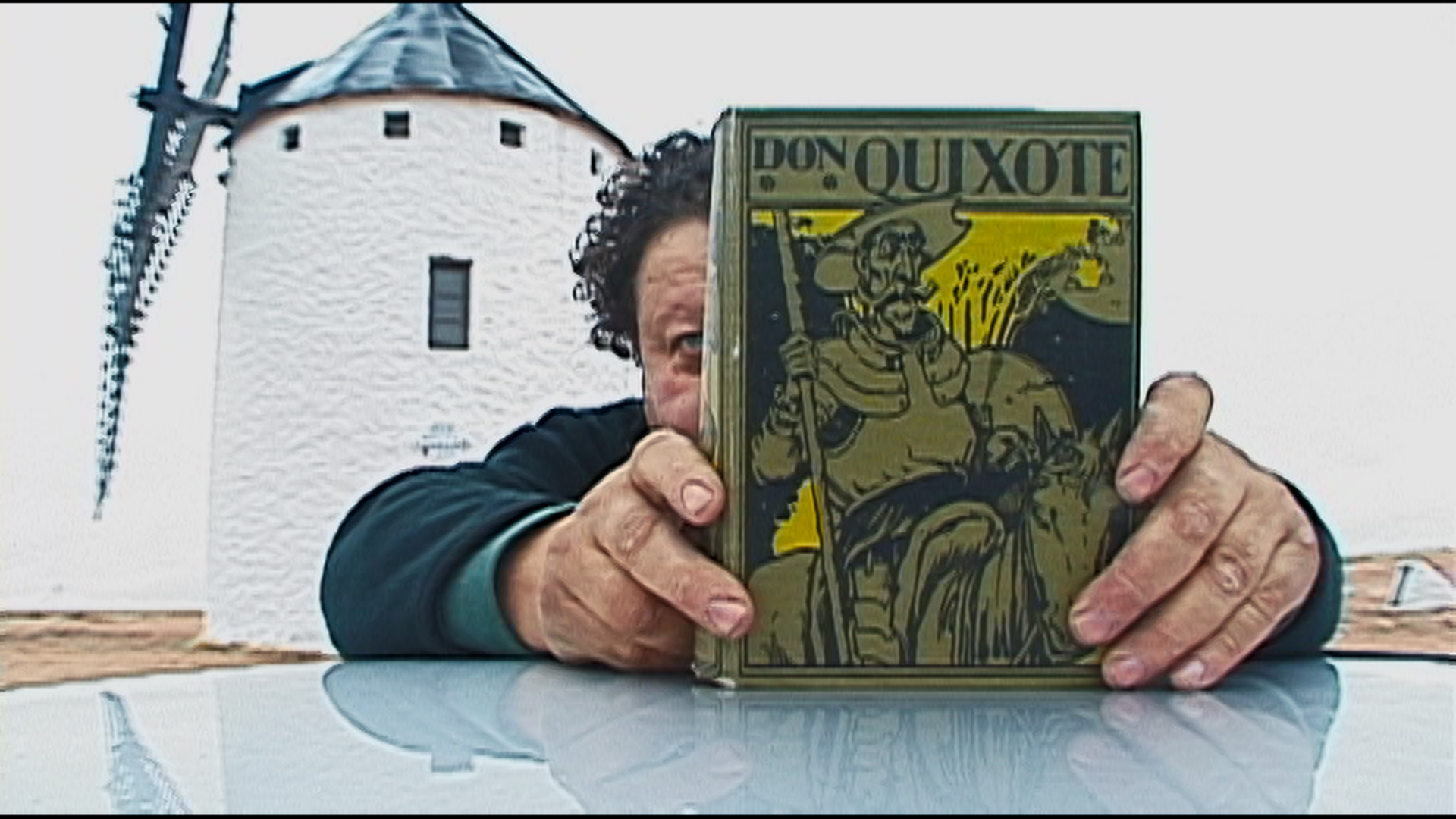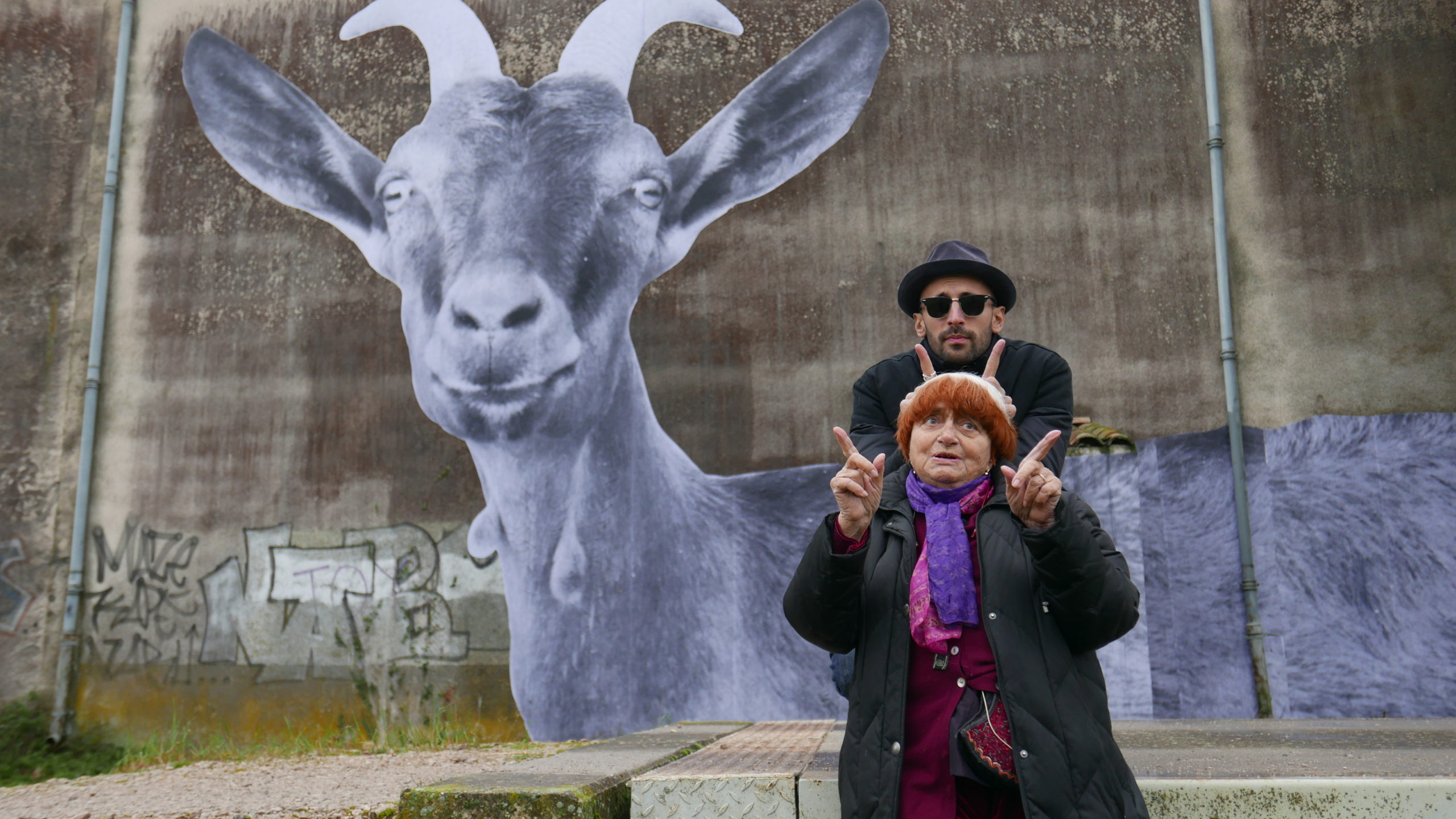It’s more important than ever to attend your local film festival. It’s never been easier, too, with virtually all of them moving online as the coronavirus pandemic makes on-site events both impractical and unsafe. The 2020 edition of Vancouver’s DOXA Documentary Festival follows on the heels of Toronto’s Hot Docs by shifting its annual gathering into a streaming event. The festivals have a fair amount of overlap with some of the best Canadian titles on the circuit (so to speak) playing to geo-blocked audiences in Ontario and British Columbia. Filmmaker/subject Q&As and master class events offer some semblance of the festival experience—and hopefully a mix of quarantine-life haircuts to lighten the mood.
At a time when everyone is stuck at home and tethered to electronic devices due to work-at-home conditions, Zoom check-ins/meetings/parties/conferences, and a news cycle that keeps upping the ante, it’s hard to consider spending more time in front of a computer screen. However, these films are worth it. For the present and foreseeable future, documentaries are a rare opportunity to expand one’s social circle. Perhaps more than ever before, the complications of COVID accentuate the power of non-fiction to offer windows into lives, experiences, and places that are outside one’s immediate reach. The stories and characters at DOXA 2020 will inspire audiences, and hopefully spark some conversations that might not otherwise happen when festivalgoers are running from film to film.
Wintopia
This year’s “opening night selection” at DOXA couldn’t be a better example of the power of documentary to bridge lives and experiences. Wintopia, a portrait of Canada’s late “documentary ambassador,” filmmaker and writer Peter Wintonick, is a love letter to movies just as much as it is a bittersweet tribute to a father by his daughter. Director Mira Burt-Wintonick lovingly reflects on her father’s passion for documentary that he instilled within her as she revisits footage shot during his lifelong search for utopia. Assembling his footage through an intimate collage that ruminates on his life, career, and legacy, the film imparts the value of intimately sharing journeys and stories through art. Read more about Wintopia and Mira Burt-Wintonick’s journey with the film in this interview with POV editor Marc Glassman, and tune into the live DOXA Q&A with the director on June 20.
Similarly, Wintopia’s fellow NFB cohort, The Forbidden Reel, examines history lost and found through recorded images. Ariel Nasr’s powerful film—one of five titles films to receive the Rogers Audience Award for Canadian features at Hot Docs—shares images of Afghan cinema that were saved from the Taliban’s wrath. These old movies, protected by film buffs and historians as the regime took power, preserve pictures of life pre-Taliban and offer valuable perspectives of a culture that has been represented almost entirely through images of war for the past quarter-century. Victor Stiff’s profile on The Forbidden Reel dives into Nasr’s retrieval of these valuable films and their role as time capsules for preserving life on screen.
Black Experiences on Screen
DOXA’s selection also features several films that anticipate the cultural pulse of the moment. Doc fans eager to engage with stories of Black experiences made by Black filmmakers will undoubtedly want to check out Michèle Stephenson’s Stateless. (Another NFB project.) Stephenson’s film, which won the jury prize for Canadian features at Hot Docs, tackles the complicated history of state-sanctioned racism in the Dominican Republican, particularly as people of Haitian descent found themselves disenfranchised after a 2013 Supreme Court ruling stripped citizenship from anyone in the DR with Haitian parents retroactive to 1929. Stateless powerfully explores the battle of narratives underway as Stephenson observes voices on both sides of the argument and captures the legacy of institutionalised anti-Black racism that continues today. The film is especially compelling with the resilience it finds in its central figure, Rosa Iris, as she indefatigably commits herself to inspiring change. Read more about Stateless in my interview with Stephenson.
Similarly, Tamara Dawit’s Finding Sally sees the filmmaker explore her family history as it intersects with the violence of revolution. Dawit’s film retraces the life of her lost aunt Sally—whom she says she only gained knowledge of recently—and enjoys interviews with her surviving aunties to learn more about the remarkably brave activist she never knew. Audiences looking for an uplifting quest à la Searching for Sugar Man won’t find it here, but Finding Sally discovers its own quiet power with the inevitability of Dawit’s quest, particularly as the family’s loss evokes the collective grief of Ethiopia in a time of change.
The film of the moment at DOXA, meanwhile, might be _Pier Kids_ by Elegance Bratton. Pier Kids, which has its international premiere at DOXA, is already drawing some comparisons to Jennie Livingston’s 1990 landmark “_Paris Is Burning_”:http://povmagazine.com/articles/view/nearly-30-years-on-paris-still-burns-bright for its glimpse into the lives of queer African-Americans. But whereas _Paris Is Burning_ is more concerned with the voguing and ballroom culture of NYC (and fabulously so), Bratton’s film takes audiences outside the houses in which the characters strut their stuff. _Pier Kids_ is a sobering portrait of homelessness, particularly as it effects queer and transgender Black youths. If doc fans want another window into the currents of society evoked in the ongoing Black Lives Matter movement, _Pier Kids_ is it.
The film of the moment at DOXA, meanwhile, might be Pier Kids by Elegance Bratton. Pier Kids, which has its international premiere at DOXA, is already drawing some comparisons to Jennie Livingston’s 1990 landmark Paris Is Burning for its glimpse into the lives of queer African-Americans. But whereas Paris Is Burning is more concerned with the voguing and ballroom culture of NYC (and fabulously so), Bratton’s film takes audiences outside the houses in which the characters strut their stuff. Pier Kids is a sobering portrait of homelessness, particularly as it effects queer and transgender Black youths. If doc fans want another window into the currents of society evoked in the ongoing Black Lives Matter movement, Pier Kids is it.
Festival Favourites
The DOXA selection includes a favourite from Sundance and Hot Docs in Sam Soko’s Softie, a portrait of Boniface “Softie” Mwangi. Dubbed the “Kenyan Bernie Sanders,” Mwangi is a photographer and journalist fighting corruption. Softie follows the activist as he confronts corruption through his award-winning photographs and eventually runs for political office. Audiences searching for character-driven documentaries with ordinary people looking to better this world should look no further. Read more about Softie in Liam Lacey’s profile of the film.
Similarly, one finds a much different activist in Phil Demers, the subject of Nathalie Bibeau’s The Walrus and the Whistleblower. Winner of both the Audience Award and the Rogers Audience Award at Hot Docs, this overall festival favourite played through the roof in Ontario with its colourful portrait of the former walrus trainer at Marineland and his fight to free marine mammals from captivity. This compelling exposé sees the self-described “asshole” challenge Marineland by speaking the company’s own language (being an asshole) while using his platform to draw attention to the corporation’s history of alleged animal cruelty—and near-comical habit for serial litigation. It’s a true David versus Goliath tale with an endearing walrus named Smooshie at its heart. Other festival favourites making their Vancouver debuts at DOXA include Don’t Worry the Doors Will Open, Małni – towards the ocean, towards the shore, Influence, and Dope Is Death.
Flying under the banner of the maple leaf, DOXA offers some Toronto like Lulu Wei’s There’s No Place Like This Place, Anyplace. The film whisks audiences to the Bloor/Bathurst neighbourhood of Toronto just steps from Hot Docs Ted Rogers Cinema to observe a city in transition. Wei’s doc profiles the changing landscape of Toronto with the closure of the iconic Honest Ed’s department store—a flamboyant outlet known for its gaudy signage, crooked floors, and square prices—as it comes down to make room for (what else?) a condo. Vancouverites should take to this doc especially as it considers the transformation of cities and urban life in the face of gentrification. Place marks Wei as an up-and-coming talent to watch from the Toronto scene.
Local Voices
On the Vancouver side, DOXA features the odd character study The End from Here by Tony Massil. The film, the lone world premiere at DOXA’s online festival, whisks audiences to the isolated bordertowns of Hyder, Alaska and Stewart, BC. Straddling the borders of these sparsely populated towns are the film’s three central characters—Jim, Carl and Ken, along with 54 feral cats and a rambunctious black bear. The reclusive men are eager for an attentive ear to which they can direct their ramblings. Through methodical portraiture, Massil’s film lets the men vent in free-wheeling observations about Donald Trump, the expansive wilderness, and family matters while speculating about the “end of it all” as the 2016 American election plays out on their television screens while tapping into sentiments they feel miles away from Trump and his rallies. It’s a provocative and unnerving work with three of the most colourful characters one could find at the festival.
Local voices and stories appear in Jadis M. Dumas’s Another Word for Learning, which profiles a character of a much different age and world than Jim, Carl, and Ken in Aisha, a young Kwakwaka’wakw girl in Vancouver’s East Side. The film follows Aisha as she navigates the possibilities for learning outside of the colonial system. Dumas’s film offers an intimate perspective of Indigenous sovereignty and the hope for the future that arises if we dismantle the old ways. Other local stories at DOXA include the character study Eddy’s Kingdom, as well as some excellent short docs including, but not limited to, Lisa Jackson’s Lichen, a hypnotic work that invites one to look at natural wonders anew, and Josephine Anderson’s invigorating essay on energy and balance On Falling. Martin Morberg and Jada-Gabrielle Pape, meanwhile, offer an empowering study of Indigenous people living with HIV in Healing Inner Voices, while audiences get an upbeat adventures in Carmen Pollard’s superbly assembled portrait of Vancouver rock ‘n’ roll DJ Red Robinson, and Joel Salaysay’s poignantly playful family gathering Home Cooking. At DOXA’s online festival, there’s a world of stories just a streaming link away.
DOXA Festival runs June 18 to 26 at DOXAfestival.ca. Stay tuned for more coverage from this year’s festival.











